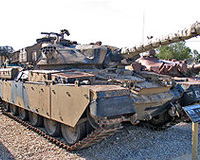We can say that two important factors caused the increase in Iran’s military and security role in the region in 1970’s, namely sharp increase of oil prices and arms purchases of Shah’s government towards the US regional strategy...
We can say that two important factors caused the increase in Iran’s military and security role in the region in 1970’s, namely sharp increase of oil prices and arms purchases of Shah’s government towards the US regional strategy.
Increase in oil prices
On September 14th 1960, OPEC attempted on gradual changes in the cheap price of this product and helped its increase with the aim of defending the real price and legal rights of the oil exporting countries.
With the onset of war between the Arabs and Israel in October 1973, the Arab oil exporting countries stopped selling to the US and the Western Europe from October 19th 1973 as proposed by Kuwait. This event caused the increase in oil prices to reach its peak which was unparalleled up to then. Between January 1973 and 1974 the oil prices increased by 350 percent and from 2.59 dollars a barrel to 11.65 dollars and so OPEC increased by 450 percent.
At the beginning of January 1974, the members of OPEC gathered in Tehran to decide on the official price of oil barrel. The Shah who beard the heavy obligations of enforcing Nixon’s doctrine and the internal development plan, proposed stabilization of the price of each oil barrel at the highest price it had in mid-December 1973 with the aim of earning more from oil sales and the proposal was accepted by the members of OPEC.
In fact, all the changes in the oil global market, presented the most benefit to Iran and its military policies, while Iran did not participate in Arab oil sanctions against the west either. Regarding this, in an interview on December 10th 1973the Shah told the German TV: “we did not and will not participate in the oil sanction. Sanction is a weapon which becomes dull quickly and the people will try to use less oil.”
Thus Iran oil income increased from 2.3 billion dollars in 1970 to 20.7 billion dollars in 1974 and per capita income increased from 259 dollars to 2000 dollars.
The most important effect of oil prices on Iran foreign policy was provision of great financial expenses of gendarme-like performance and out of border plans with an emphasis on arms purchase. The importance of this issue became clearer with regard to England’s explicit announcement of imposing the heavy responsibility of maintenance and protection of security in the region on Iran’s shoulders after retreat.
Increase of oil prices and expansion of Shah’s arms purchases
at the same time as new regional policies at the beginning of 1970’s and the unparalleled increase of oil prices, Iran engaged in crazy-like purchasing a different and various collection of the newest and most expensive military productions of different countries. The US, in coordination with Nixon’s doctrine was the most effective source of providing these needs. The US, army and militarism were among the most important factors in Iran foreign policy during 1970-1978.
the US, who had renewed its military advisors’ activities with the aim of establishing a new structure in Iran army after the Second World War, gradually, by realizing Iran’s strategic importance during the cold war, increased its dominance over Iran’s military organization, the peak of which was during Eisenhower’s premiership and his approach in confronting the Soviet Union, under the guise of protecting the perimeter and membership of Iran in CENTO treaty.
On 30th and 31st May 1972, after returning from west Europe, Richard Nixon and Henry Kissinger, performed very important negotiations with the Shah of Iran regarding the future of the army and arms purchase in Tehran. According to these negotiations Iran was allowed to purchase any kind of military weapon, other than nuclear equipment from the US arms factories. Also, any kind of official difficulties against development of military participation with Iran must be elevated.
As a result, Iran military expenses increased. In 1970 $88 million, 1971- 1.065, 1972- 1.375, 1973- 1.525, 1974-3.68 and in 1975 It reached the blinding amount of 6.325 billion dollars and percentage of military expenses annual increase reached 41 percent in 1975 from 17 percent in 1970. in 1976, the Iran military expenses was a lot more than China, Brazil, Israel and England as world powers and with regard to population and war records.
Thus a very powerful military organization was established in Iran the facilities of which was clearly uncoordinated with the defense policy talked about by the Shah. This very much armed army seemed great against border clashes and confronting possible attacks of neighbors, the only threat being that of Iraq; but seemed petty in confronting superpowers especially the Soviet Union. Theodore Sourlen – Kennedy’s personal advisor regarding Iran army, correctly said: “in Iran the Shah insists on our support of his expensive army which is too large for border clashes and internal security but useless for use in a real war. His army was like a famous man who was heavier than to be able to do light work and too light to be able to do heavy work.”
Thus, the military hasty and crazy arming was towards Nixon’s doctrine and the two pillars’ and regional policy and Iran, with advanced military tools, was considered a leverage and a definite replacement force in the US’ interfering indirect plans. The Shah used his army which was dependent on the most modern military equipment in advancement of foreign policies; so much that it may be correct to say it was considered the sharpest blade and the last resort of the regime.
https://iichs.ir/vdch.mnzt23n-i10d2.html
iichs.ir/vdch.mnzt23n-i10d2.html
